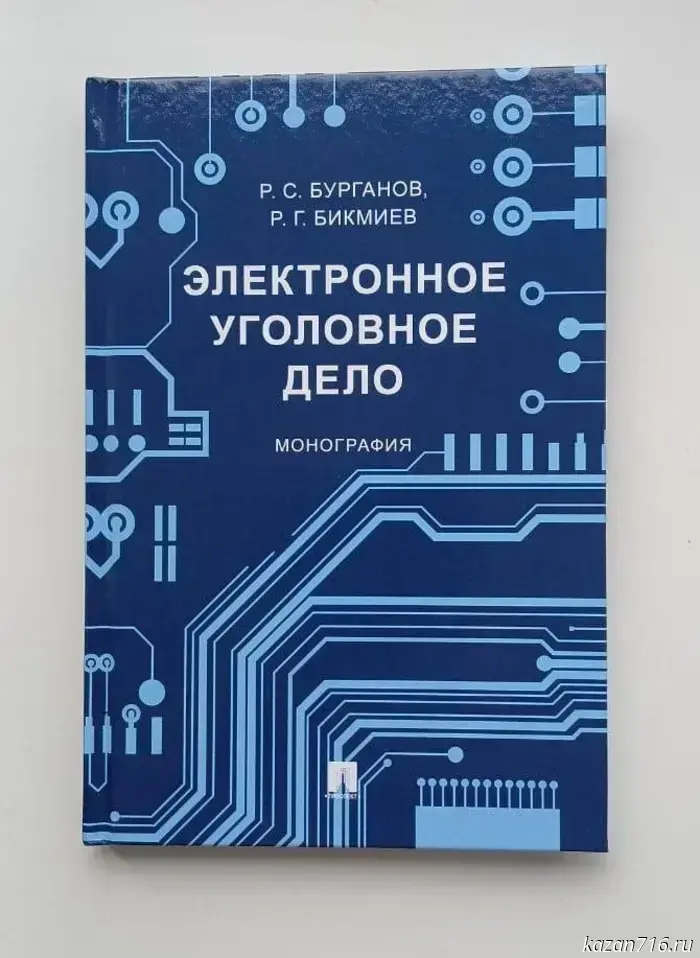
Frankenstein, 2025. Written and Directed by Guillermo del Toro. Featuring Oscar Isaac, Jacob Elordi, Mia Goth, Christoph Waltz, Felix Kammerer, David Bradley, Lars Mikkelsen, Christian Convery, Charles Dance, Burn Gorman, Ralph Ineson, Cullen McFater, Lauren Collins, Nikolaj Lie Kaas, Roberto Campanella, Stuart Hughes, and Joachim Fjelstrup. SYNOPSIS: An ingenious yet self-centered scientist animates a creature in a horrific experiment that ultimately leads to the downfall of both the creator and his sorrowful creation. Guillermo del Toro's long-awaited adaptation of Mary Shelley’s classic Frankenstein combines a faithful treatment of the original material with the filmmaker’s personal fantastical style reminiscent of graphic novels and a generous budget from Netflix. While the impressive CGI contributes to the visual spectacle, it also injects a sense of emptiness into the narrative. Fortunately, Jacob Elordi delivers a transformative performance as The Creature, conveying both sensitivity and fury, which aligns perfectly with Guillermo del Toro’s longstanding fascination with beauty, Gothic romance, and intense violence. The film employs a two-chapter structure where both Victor Frankenstein (played by Oscar Isaac) and The Creature share their tales with the captain of a shipwrecked vessel in the frigid pursuit of the North Pole. The familiar story unfolds, with the notable distinction that it benefits from unprecedented financial support, which can be a double-edged sword. Victor recounts his tragic early life (with Christian Convery portraying the younger version), marked by the early death of his mother due to illness and the immense pressure exerted by his father (Charles Dance) regarding his studies. Consequently, Victor becomes fixated on preventing death through unorthodox scientific endeavors, combining body parts and organs from various corpses in a quest to bring them to life. Essentially, he embodies the archetype of a mad scientist playing God, backed by the arms-dealing uncle (Christoph Waltz) of his brother’s fiancée, Elizabeth (Mia Goth), who is also invested in these experiments. Elizabeth Lavenza acknowledges Victor's brilliance but is equally repulsed by his hubris. Once his creation is successful and reduces to merely repeating “Victor,” he finds himself bored and increasingly frustrated with The Creature. In contrast, Elizabeth interacts with The Creature in a way that exhibits a nurturing kindness. This dynamic reflects the essence of Guillermo del Toro as a storyteller, yet it feels somewhat inadequate in a film that devotes just over an hour to exploring the creation process in depth. This suggests that parts of this interpretation of Frankenstein feel monotonous, and no amount of elaborate costumes or striking cinematography by regular collaborator Dan Laustsen can remedy that. Fortunately, the film gains momentum and truly resonates once it pivots to The Creature's perspective, where Jacob Elordi fully engages with a broad spectrum of emotions, enhanced by remarkable makeup effects. As is widely recognized, his existence beyond Victor's betrayal is fraught with grace, accumulated wisdom, and humanity (despite his monstrous form), yet it is also marked by emotional turmoil and further betrayal. It is within these moments that genuine emotion emerges. Nevertheless, regardless of the budget spent on this version of Frankenstein, it does not emerge as the definitive rendition that Guillermo del Toro aimed for. It represents a compelling interpretation that leverages impressive production design, stunning effects, and evocative performances and visuals, yet there is an underlying sense of artificiality. In some ways, it mirrors Frankenstein itself, with Guillermo del Toro imprinting his vision on Mary Shelley’s narrative within a Netflix framework that yields mixed outcomes. Flickering Myth Rating – Film: ★ ★ ★ / Movie: ★ ★ ★ Robert Kojder
16 октября 2025 года, в день перед праздником обретения мощей святителей Гурия, архиепископа Казанского, и Варсонофия, епископа Тверского, а также празднования Собора Казанских святых, в Казанском кафедральном соборе Казанского Богородицкого мужского монастыря было совершено всенощное бдение под руководством митрополита Казанского и Татарстанского Кирилла, епископа Рыбинского и Борисоглебского Вениамина, епископа Чистопольского и Нижнекамского Пахомия, епископа Альметьевского и Бугульминского Мефодия, епископа Сарапульского и Можгинского Павла, епископа Нефтекамского и Белебеевского Митрофана и епископа Набережночелнинского и Елабужского Гавриила.
Архиерейскому собору сослужили секретарь Татарстанской митрополии иеромонах Кирилл (Корытко), настоятель Казанского Богородицкого монастыря игумен Марк (Виленский) и клирики епархий Татарстанской митрополии.
Перед началом службы состоялся торжественный прием ковчега с частицей мощей святителя Луки Крымского из Свято-Троицкого монастыря Симферополя.
Пение исполняли архиерейский смешанный хор под руководством Марины Литвиненко, хор духовенства Казанской епархии под управлением диакона Максима Иванчука, и хор воспитанников Казанской духовной семинарии под руководством Дениса Рогова.
В центре храма был установлен ковчег с частицей мощей святителя Луки Крымского для молитвенного поклонения верующих, который был принесён в столицу Татарстана.
В завершение богослужения было совершено славление Божией Матери перед почитаемым Казанским образом. Верующие исполнили молитву «Радуйся, Радосте наша».
Митрополит Кирилл приветствовал участников торжественного мероприятия, после чего было проведено молебное пение перед ковчегом с мощами святителя Луки. Верующим раздавали иконки святого угодника.
Завтра, 17 октября, в день обретения мощей святителей Гурия, архиепископа Казанского, и Варсонофия, епископа Тверского, в Казанском кафедральном соборе Казанского Богородицкого мужского монастыря будет совершена Божественная литургия с участием архипастырей. Начало богослужения в 9.00.
Епархия в Казани была основана святым Гурием. По указу царя Иоанна Васильевича митрополит Макарий учредил архиепископство в Казани в 1555 году. С 1589 года там управляли митрополиты, а с 1832 года – епископы и архиепископы.
Обретение мощей святителей Гурия и Варсонофия произошло в 1595 году в Казани.
С 16 по 26 октября в Казани будет находиться ковчег с частицей мощей святителя Луки Крымского для молитвенного поклонения верующих. В эти дни в храме будут проводиться молебны с пением акафиста целителю. Все могут помолиться перед святыней и попросить помощи у почитаемого угодника Божия.
Источник: Tatmitropolia
Дополнительные новости о событии:
16 октября в Казанском епархиальном управлении состоялось очередное заседание Архиерейского совета Татарстанской митрополии под председательством митрополита Казанского и Татарстанского Кирилла.
В канун праздника Собора Казанских святых в Казани прошло соборное архиерейское богослужение.
Вечером 16 октября в кафедральном соборе Казанской иконы Божией Матери было совершено архиерейское богослужение.
Ковчег с частицей мощей святителя Луки Крымского был торжественно встречен в Казани.
Ковчег с мощами святителя Луки был принесён в Казанский кафедральный

Другие Новости Казани (Казань716)
 За 9 месяцев Татарстан израсходовал почти 30 миллиардов рублей на выполнение национальных проектов.
Их цель заключается в улучшении качества жизни населения региона.
В Татарстане уже израсходовано почти 30 миллиардов рублей на выполнение национальных проектов. 16.10.2025. Альметьевск РТВ. Республика Татарстан. Альметьевск.
За 9 месяцев Татарстан израсходовал почти 30 миллиардов рублей на выполнение национальных проектов.
Их цель заключается в улучшении качества жизни населения региона.
В Татарстане уже израсходовано почти 30 миллиардов рублей на выполнение национальных проектов. 16.10.2025. Альметьевск РТВ. Республика Татарстан. Альметьевск.
 От искусственного интеллекта до электронной документации: председатель Заинского городского суда презентовал финальную книгу трилогии.
Монография «Электронное уголовное дело», изданная тиражом 1000 экземпляров, посвящена памяти судей и сотрудников судов, которые погибли или пропали без вести во времена Великой Отечественной войны, и будет служить руководством для юристов страны. 17.10.2025. Заинск-информ. Республика Татарстан. Заинск.
От искусственного интеллекта до электронной документации: председатель Заинского городского суда презентовал финальную книгу трилогии.
Монография «Электронное уголовное дело», изданная тиражом 1000 экземпляров, посвящена памяти судей и сотрудников судов, которые погибли или пропали без вести во времена Великой Отечественной войны, и будет служить руководством для юристов страны. 17.10.2025. Заинск-информ. Республика Татарстан. Заинск.
 17 октября 2025 года: Знаки, празднования и обычаи этого дня.
Семнадцатое октября объединяет православные обычаи, народную мудрость и необычные международные праздники. 17.10.2025. Волжская новь. Республика Татарстан. Верхний Услон.
17 октября 2025 года: Знаки, празднования и обычаи этого дня.
Семнадцатое октября объединяет православные обычаи, народную мудрость и необычные международные праздники. 17.10.2025. Волжская новь. Республика Татарстан. Верхний Услон.
 Монография «Электронное уголовное дело», выпущенная тиражом 1000 экземпляров, посвящена памяти судей и сотрудников судебных органов, которые погибли или пропали без вести во время Великой Отечественной войны. Она станет справочным пособием для юристов страны.
Вышла новая монография «Электронное уголовное дело», соавтором которой выступает председатель Заинского городского суда, кандидат юридических наук и доцент кафедры уголовно-правовых дисциплин Казанского филиала Российского государственного университета правосудия имени В. М. Лебедева Рамиль Бикмиев. Это третья книга в серии научных трудов, посвящённых цифровой трансформации правосудия. Важным является то, что труд посвящён светлой памяти судей и сотрудников судебных органов, которые отдали свои жизни за Родину в годы войны.
Рамиль Бикмиев отмечает, что эта монография завершает трилогию, посвящённую внедрению современных технологий в судопроизводство. «В первой книге мы рассматривали общие вопросы информатизации, во второй — использование искусственного интеллекта в судебной деятельности. Наконец, третья книга отвечает на практический вопрос: как внедрять цифровые технологии в уголовный процесс. Мы исследовали, что такое «электронное уголовное дело» и как оно изменяет работу судов и следствия. Наша цель — помочь юридическому сообществу уверенно переходить к работе в новом, цифровом формате», — рассказывает председатель суда.
Новое издание призвано не только проанализировать существующие практики, но и способствовать дальнейшей цифровизации уголовного процесса. Монография «Электронное уголовное дело» подготовлена в соавторстве с кандидатом юридических наук, доцентом Казанского филиала Российского государственного университета правосудия Рамисом Бургановым. Основное внимание в исследовании уделяется комплексному анализу электронного уголовного дела в российской судебной системе.
Авторы подробно обсуждают:
- Понятие, суть и порядок ведения электронного уголовного дела.
- Историю развития и принципы организации этой новой формы правосудия.
- Особенности функционирования «электронного дела» на всех этапах процесса — от предварительного следствия до исполнения приговора.
- Правовое регулирование и технические аспекты развития единой платформы электронного уголовного судопроизводства.
Книга станет ценным практическим ресурсом для широкой аудитории специалистов: судей, сотрудников Судебного департамента, МВД, Следственного комитета РФ, прокуроров и адвокатов. Также монография будет интересна преподавателям, студентам и аспирантам юридических вузов, а также всем, кто интересуется современными тенденциями в уголовном процессе.
Выход новой монографии является значимым событием для юридического сообщества и подчеркивает динамичное развитие отечественного правосудия и его движение к цифровому будущему.
Власти Татарстана объявили об окончании режима беспилотной опасности, который продолжался почти семь часов. 17.10.2025. Газета Тетюшские зори. Республика Татарстан. Тетюши.
Монография «Электронное уголовное дело», выпущенная тиражом 1000 экземпляров, посвящена памяти судей и сотрудников судебных органов, которые погибли или пропали без вести во время Великой Отечественной войны. Она станет справочным пособием для юристов страны.
Вышла новая монография «Электронное уголовное дело», соавтором которой выступает председатель Заинского городского суда, кандидат юридических наук и доцент кафедры уголовно-правовых дисциплин Казанского филиала Российского государственного университета правосудия имени В. М. Лебедева Рамиль Бикмиев. Это третья книга в серии научных трудов, посвящённых цифровой трансформации правосудия. Важным является то, что труд посвящён светлой памяти судей и сотрудников судебных органов, которые отдали свои жизни за Родину в годы войны.
Рамиль Бикмиев отмечает, что эта монография завершает трилогию, посвящённую внедрению современных технологий в судопроизводство. «В первой книге мы рассматривали общие вопросы информатизации, во второй — использование искусственного интеллекта в судебной деятельности. Наконец, третья книга отвечает на практический вопрос: как внедрять цифровые технологии в уголовный процесс. Мы исследовали, что такое «электронное уголовное дело» и как оно изменяет работу судов и следствия. Наша цель — помочь юридическому сообществу уверенно переходить к работе в новом, цифровом формате», — рассказывает председатель суда.
Новое издание призвано не только проанализировать существующие практики, но и способствовать дальнейшей цифровизации уголовного процесса. Монография «Электронное уголовное дело» подготовлена в соавторстве с кандидатом юридических наук, доцентом Казанского филиала Российского государственного университета правосудия Рамисом Бургановым. Основное внимание в исследовании уделяется комплексному анализу электронного уголовного дела в российской судебной системе.
Авторы подробно обсуждают:
- Понятие, суть и порядок ведения электронного уголовного дела.
- Историю развития и принципы организации этой новой формы правосудия.
- Особенности функционирования «электронного дела» на всех этапах процесса — от предварительного следствия до исполнения приговора.
- Правовое регулирование и технические аспекты развития единой платформы электронного уголовного судопроизводства.
Книга станет ценным практическим ресурсом для широкой аудитории специалистов: судей, сотрудников Судебного департамента, МВД, Следственного комитета РФ, прокуроров и адвокатов. Также монография будет интересна преподавателям, студентам и аспирантам юридических вузов, а также всем, кто интересуется современными тенденциями в уголовном процессе.
Выход новой монографии является значимым событием для юридического сообщества и подчеркивает динамичное развитие отечественного правосудия и его движение к цифровому будущему.
Власти Татарстана объявили об окончании режима беспилотной опасности, который продолжался почти семь часов. 17.10.2025. Газета Тетюшские зори. Республика Татарстан. Тетюши.
 Без светофоров до М12 мимо села по четырем полосам: в Татарстане завершили строительство обходной дороги для Сокуров.
В Лаишевском районе Татарстана была открыта объездная дорога для Сокуров.
«Качество жизни миллионов людей зависит от надежной транспортной инфраструктуры».
В преддверии Дня работников дорожного хозяйства и Дня работника автотранспорта 16.10.2025. ИА Татар-информ. Республика Татарстан. Казань.
Без светофоров до М12 мимо села по четырем полосам: в Татарстане завершили строительство обходной дороги для Сокуров.
В Лаишевском районе Татарстана была открыта объездная дорога для Сокуров.
«Качество жизни миллионов людей зависит от надежной транспортной инфраструктуры».
В преддверии Дня работников дорожного хозяйства и Дня работника автотранспорта 16.10.2025. ИА Татар-информ. Республика Татарстан. Казань.
 Китайская компания возведет в Казани многофункциональный комплекс под названием «ЯрПарк».
Проект подразумевает строительство 13 зданий с общей площадью 302 тысячи квадратных метров.
Китайская компания PowerChina International Group Limited, занимающая 15-е место среди крупнейших транснациональных китайских компаний, 16.10.2025. TatCenter.ru. Республика Татарстан. Казань.
Китайская компания возведет в Казани многофункциональный комплекс под названием «ЯрПарк».
Проект подразумевает строительство 13 зданий с общей площадью 302 тысячи квадратных метров.
Китайская компания PowerChina International Group Limited, занимающая 15-е место среди крупнейших транснациональных китайских компаний, 16.10.2025. TatCenter.ru. Республика Татарстан. Казань.
Frankenstein, 2025. Written and Directed by Guillermo del Toro. Featuring Oscar Isaac, Jacob Elordi, Mia Goth, Christoph Waltz, Felix Kammerer, David Bradley, Lars Mikkelsen, Christian Convery, Charles Dance, Burn Gorman, Ralph Ineson, Cullen McFater, Lauren Collins, Nikolaj Lie Kaas, Roberto Campanella, Stuart Hughes, and Joachim Fjelstrup. SYNOPSIS: An ingenious yet self-centered scientist animates a creature in a horrific experiment that ultimately leads to the downfall of both the creator and his sorrowful creation. Guillermo del Toro's long-awaited adaptation of Mary Shelley’s classic Frankenstein combines a faithful treatment of the original material with the filmmaker’s personal fantastical style reminiscent of graphic novels and a generous budget from Netflix. While the impressive CGI contributes to the visual spectacle, it also injects a sense of emptiness into the narrative. Fortunately, Jacob Elordi delivers a transformative performance as The Creature, conveying both sensitivity and fury, which aligns perfectly with Guillermo del Toro’s longstanding fascination with beauty, Gothic romance, and intense violence. The film employs a two-chapter structure where both Victor Frankenstein (played by Oscar Isaac) and The Creature share their tales with the captain of a shipwrecked vessel in the frigid pursuit of the North Pole. The familiar story unfolds, with the notable distinction that it benefits from unprecedented financial support, which can be a double-edged sword. Victor recounts his tragic early life (with Christian Convery portraying the younger version), marked by the early death of his mother due to illness and the immense pressure exerted by his father (Charles Dance) regarding his studies. Consequently, Victor becomes fixated on preventing death through unorthodox scientific endeavors, combining body parts and organs from various corpses in a quest to bring them to life. Essentially, he embodies the archetype of a mad scientist playing God, backed by the arms-dealing uncle (Christoph Waltz) of his brother’s fiancée, Elizabeth (Mia Goth), who is also invested in these experiments. Elizabeth Lavenza acknowledges Victor's brilliance but is equally repulsed by his hubris. Once his creation is successful and reduces to merely repeating “Victor,” he finds himself bored and increasingly frustrated with The Creature. In contrast, Elizabeth interacts with The Creature in a way that exhibits a nurturing kindness. This dynamic reflects the essence of Guillermo del Toro as a storyteller, yet it feels somewhat inadequate in a film that devotes just over an hour to exploring the creation process in depth. This suggests that parts of this interpretation of Frankenstein feel monotonous, and no amount of elaborate costumes or striking cinematography by regular collaborator Dan Laustsen can remedy that. Fortunately, the film gains momentum and truly resonates once it pivots to The Creature's perspective, where Jacob Elordi fully engages with a broad spectrum of emotions, enhanced by remarkable makeup effects. As is widely recognized, his existence beyond Victor's betrayal is fraught with grace, accumulated wisdom, and humanity (despite his monstrous form), yet it is also marked by emotional turmoil and further betrayal. It is within these moments that genuine emotion emerges. Nevertheless, regardless of the budget spent on this version of Frankenstein, it does not emerge as the definitive rendition that Guillermo del Toro aimed for. It represents a compelling interpretation that leverages impressive production design, stunning effects, and evocative performances and visuals, yet there is an underlying sense of artificiality. In some ways, it mirrors Frankenstein itself, with Guillermo del Toro imprinting his vision on Mary Shelley’s narrative within a Netflix framework that yields mixed outcomes. Flickering Myth Rating – Film: ★ ★ ★ / Movie: ★ ★ ★ Robert Kojder
16 октября 2025 года, накануне праздника обретения мощей святителей Гурия, архиепископа Казанского, и Варсонофия, епископа Тверского, будет отмечаться Собор Казанских Святых, который состоится 17.10.2025. Альметьевская Епархия. Республика Татарстан. Альметьевск.
